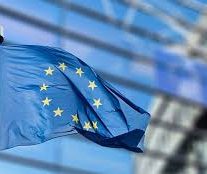
EU elections and migration
Migration 23 April 2019Why? Sometimes we have so many thinks and things in our mind. Issues, concerns, warns or just questions. No matters what’s running in our mind, we spend our time, either consciously or unconsciously, trying to get the answer we need. After we get the answer, we ask to ourselves: is this the right answer?
It’s very hard figure out if we get the right answer when it is a political matter. Why? Because we can’t make experiments. I mean, we can do that in a certain way of course, but it is not a scientific subject, domain, as physics. We cannot take measures, we cannot do surveys involving millions of citizens. We cannot predict people’s behavior: both as a whole and as a single person. We cannot say: this feeling or this idea or the common sense about this item affect people in this way so this is the output.
We cannot do that. At all. But why? So why we still insist making us questions? Making questions, and then try getting answers, is part of our nature, even if we already know we can’t be sure about what we are looking for.
It is a factthat all over the world, not just in Europe, there is no huge participation in elections. Moreover, among European countries, there is less participation on European votes. As we can see in this POLITICO here we have two why. First: why there is no huge participation in national elections? Second: why this participation, just considering EU Countries, is lower when it’s EU elections’ time?
Furthermore it is a fact too, that populist and euro skeptical parties are rising in many EU Countries. In some of them populist parties are part of the Government of those Countries. How it could be possible? Why?
As we saw few numbers ago Salvini, Le Pen and all the rest of the euro skeptical “troup” are rising in the polls. Raising high so much that, for the first time in the EU history, the alliance between Socialists (S&D Group) and Populars (PPE) will be not enough to get the majority in the European Parliament without the help of the Liberals (ALDE).
Why for the first time they are not enough powerful to lead the game? What happened during the past five years to get now this quite unexpected political scenario? How it could be possible? Why?
Of course once you begin making questions most of the time you don’t get answers. What happens? Exactly the contrary. You get more questions. Is there any link between the decline of electoral participation and the raise of populism? Are they inversely proportional? Or are they not?
As Euractive have already highlighted, considering the last EU elections, turnout in 2014 was already decreasing. Indeed we had less participation than we had in 2009. What does this trend tell us? What does it mean? Maybe we could affirm it is a sign that something was already going bad, if we take for granted that as much as people vote as much a democracy works correctly.
We have so many questions but, on the other hand, we do not have so many answers. For this reason I’d like to make to you, and me too, other questions.
Looking over the European political landscape in this way could be useful to try to give the right importance, meaning, to migration item. In this scenario migration issue has helped populist climb? If we consider their political speeches and their (presumed?) political battles, we can say yes. The point is, how? Populist has always claimed a lot against migrants but until three years ago, more or less, populists were not so strong. Why? What is the factor that has made migration issue a continental matter? What is the factor that has made migration issue a factor itself?



